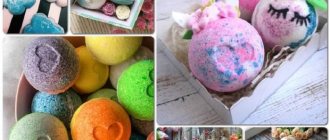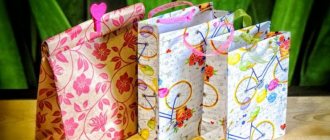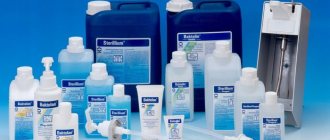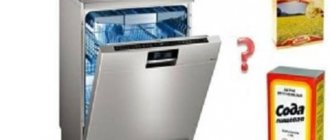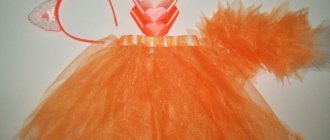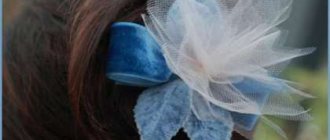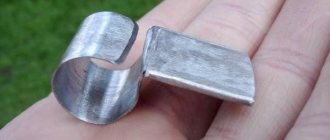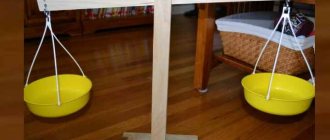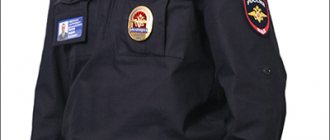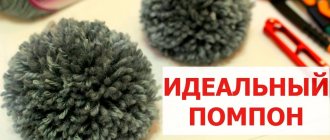Until now, some housewives make their own detergent, although hardware stores offer dozens of household chemicals. To clean the house, time-tested products are used: baking soda, vinegar, citric acid, mustard, hydrogen peroxide. Some components are good at removing dust and sticky food stains, others are good at removing old grease, and still others cope with limescale deposits. We have collected 10 recipes for the most effective detergents.
Advantages
Experienced housewives highlight a number of positive qualities of household products prepared at home. These include:
Ease of preparation. When creating a chemical solution, you will need a little free time and care.
Minimum financial costs. The ingredients from which the detergent will be made can be purchased at a minimal cost.
Health safety. Compliance with proportions guarantees safety during the operation of household household chemicals. It does not accumulate on the surface of the dishes.
Quick removal of grease stains. Active substances when exposed to hot water effectively remove fat molecules.
Pros and cons of homemade gels and pastes
The benefits of homemade dishwashing remedies are:
- simple composition;
- low cost;
- the ability to select a convenient consistency;
- harmless for children and allergy sufferers.
The disadvantages include the following aspects:
- the need to combine several recipes for severe or old stains;
- labor-intensive preparation;
- high cost of funds;
- short shelf life;
- poor foaming, especially in cold water.
The features of each composition are presented in more detail below:
| Components | Advantages | Flaws |
| Laundry soap | Suitable for all types of dishes, does not cause allergies | Has an unpleasant odor, dries the skin very much, is ineffective in hard and cold water |
| Soap + soda | Maintains effectiveness in hard water and has an abrasive effect | Not used for dishes with gold plated or thin coatings Ready-made products have a strong aroma Mustard can cause skin irritation |
| Mustard | Removes grease, gently cleans off fresh deposits, does not leave microdamages on the surface | |
| Soap + coffee + mustard | Combines abrasive and anti-greasy properties | |
| Vinegar | Indispensable for cleaning dishes from scale and mold | Does not affect fat Does not apply to washing Teflon, aluminum, copper |
| Lemon | Has a pleasant smell, used for delicate washing (for example, porcelain and fine glass) | Not suitable for coatings that are not resistant to acids May cause allergies (only during washing) |
| Ammonia | Effective against old fat and carbon deposits | It has a pungent odor; you need to protect your hands when using it, and when washing and cooking for a long time, protect your eyes and nose. |
Soap based detergent
How to make detergent from laundry soap? This substance can remove visible traces of dirt from ceramic and iron cookware.
During the manufacturing process, it is recommended to observe the proportions and the entire list of ingredients. When interacting with each other, they show positive results.
To work you will need:
- Vinegar 9%;
- Lemon juice 2 tbsp;
- A small piece of laundry soap;
- 1 tbsp. soda ash;
- Hydrogen peroxide 1 tsp;
- Mustard powder 3 tbsp;
- Ethyl alcohol 1 tbsp;
- Grapeseed oil 1 tsp.
Soda
Baking soda works well for washing dishes. Even if he swallows it, there will be no problem. It is enough to dissolve 1 tablespoon of powder in lukewarm water (1 liter).
A solution of natural baking soda can whiten fittings, tiles and even linens.
Baking soda restores yellow glassiness, removes soot from pots and pans, cleans stoves and ovens, and gets rid of soot and tea deposits. To enhance the effect, it is supplemented with other components.
How to make detergent from soap?
Dissolve laundry soap in a deep container to a viscous consistency. To do this, grind the soap bar on a grater. After that, add 1 tbsp. l. warm water and vigorously stir the resulting mixture.
Now add soda ash, ethyl alcohol, mustard powder, hydrogen peroxide. The result is a thick paste, which we dilute with a small amount of warm water.
Before washing dishes, add citric acid. The resulting composition will actively foam and contribute to the rapid removal of fatty and visible contaminants.
At the end of the process, it is recommended to thoroughly rinse the dishes 5 times with running water.
Laundry soap
The name speaks for itself: a truly versatile home assistant has not escaped kitchen troubles. Make laundry soap as follows:
- Rub off a quarter of the dark soap.
- Pour the resulting chips into a bowl and place in a water bath.
- Slowly pour half a cup of water into the soap shavings until it melts.
- Add 5 tablespoons of glycerin to soften your hands.
At first the product will be liquid, but then it will thicken, turning into a dish gel. For a pleasant aroma, you can add 4-5 drops of any essential oil. For disinfection purposes, add 1 tablespoon of drinking alcohol to the mixture.
Important: put the soap in cold water and slowly dissolve over low heat (or in a water bath). If you dip the chips in hot liquid, they will dissolve less easily. Stir the mixture.
Detergent based on mustard powder
How to make liquid detergent? To create the composition you will need dry mustard. This powder has adsorbing properties. When he manages to cope with fatty deposits on any type of surface.
To create a home remedy you will need the following ingredients:
- Warm water 1 l;
- Mustard powder 2 tbsp;
- Soda ash 3 tbsp.
We make homemade detergent with our own hands. In a deep container, mix soda ash and mustard to a uniform consistency.
Dissolve the powder mixture with warm water. Actively stir the resulting mixture until the ingredients are completely dissolved.
Pour the liquid into an airtight container. Next, apply a small amount of the cleansing composition to the sponge. Carefully clean three areas of contamination until fatty deposits are completely removed.
The final step is to thoroughly rinse the dishes under running water for 3 minutes. This manipulation will remove the remaining abrasive particles from the surface of ceramic and tin elements.
To remove old contaminants, long-term boiling of the mustard composition inside the container is used.
Lemon
You can make your own dishwashing liquid using very simple ingredients. There is no need to look for special ingredients and spend large sums - everyday products will do the job perfectly. Recipes for household detergents are simple; the method of preparing them does not require much time or special knowledge and skills. The resulting mixtures should be stored in glass containers at room temperature.
Lemon destroys all unpleasant odors
So, the first option is lemon juice, which is used not only to remove stains from clothes, but also to treat cutting boards after cooking fish. It removes the smell of onions and garlic very well. Cut the lemon in half and wipe the board clean. Use the juice when washing your hands and add it to any detergent as it is the best natural fragrance.
Tip: Tired of fighting lime in your kettle? Just pour water over the lemon slices, bring to a boil, leave for half an hour and get back to cleaning!
Effervescent dishwashing detergent
This type of homemade household chemicals prevents dry skin and the occurrence of allergic reactions.
The substances included in the cleaning liquid do not accumulate on the surface of the dishes and do not have a harmful effect on the human body.
To make this composition you will need the following ingredients. These include:
- Soda ash powder 3 tbsp;
- Hydrogen peroxide 4 tbsp.
The ingredients mix funny with each other until a chemical reaction occurs in the form of hissing.
After this, pour the liquid into a container with a spray bottle. This part will allow you to dose the cleaning composition during operation.
Hydrogen peroxide works great on old, living deposits. After cleaning the dishes, it is recommended to rinse the items under running water for 2 minutes.
PVA glue
Folk dishwashing products also contain a specific substance such as glue. Perfectly cleans old frying pans and ovens from soot and burnt food. Cooking method:
- Bring 4 liters of water to a boil;
- add soap shavings (1/2 bar) and PVA glue (1 tbsp) to the liquid
- Mix.
Use this solution on frying pans and other kitchen utensils.
If necessary, increase the amount of ingredients in the eyes. The advantage of this method is the minimal use of physical effort: the adhesion of food and waste lags behind. The main thing is not to forget to rinse the dishes well after such “drastic” actions.
Photo of detergent
https://www.youtube.com/watch?v=PaAbmdayG50
DIY dishwasher tablets
You can make your own cleaning products for tablets. Everything you need: lemon (1 pc.), Baking soda (150 g), magnesia (500 g), borax (200 g).
Mix dry ingredients and then add lemon juice. The resulting mass is poured into ice molds placed in the freezer. After 3-4 hours, the tablets will harden and be ready for use. Store them in a plastic container in a dry place.
So, there are many options for making homemade dishwashing detergent. They are a worthy replacement for expensive household chemicals. To find “your” detergent that meets your requirements. Try several options if you want to satisfy all your requirements, especially since all the recipes are quick and economical.
Tea brewing
Have you ever noticed streaks on the glass after washing mirrors or windows? Regular tea will help cope with them. Prepare a strong brew, dip a sponge into it and wipe the glass. Then lightly rub them with a clean cloth.
A solution of vinegar and tea prepared in a 1:2 ratio will help restore the shine of crystal.
By the way, do not rush to throw away the tea leaves that are left after drinking tea.
- 5 ways to use sleeping tea in the garden
Don't rush to flush the tea leaves down the toilet!
Activated carbon
The adsorbing properties of activated carbon have been known for a long time. With its help, for example, they treat cuts and wounds on plants, shed soil and disinfect water for rooting cuttings. We also have a separate article about the beneficial properties of coal.
- Activated carbon - 10 original ways to use it in the countryside
When you have activated carbon on hand, you don’t have to worry about many country problems!
When it comes to cleaning the house, charcoal comes in handy as a remover of unpleasant odors. Grind up a few charcoal tablets and then place them inside the refrigerator or trash can for 2-3 hours. According to experienced housewives, the product neutralizes unpleasant odors.
Raw potatoes
Another trouble-free product for cleaning tiles and glass is peeled raw potatoes. Cut the tuber in half and rub the desired surface smoothly. Then wipe with a clean cloth. To be fair, it is worth noting that as the cut becomes dirty, it will have to be updated. But the additional troubles in this case will be compensated by the cleanliness of the glass and tiles.
Peeled potatoes that are not useful for harvesting can be used not only for cooking, but also for “beauty” masks.
- Masks made from raw and boiled potatoes for dry, oily and aging skin
Our “second bread” is not only a favorite vegetable, but also an excellent cosmetic product.
Sour but clean
White vinegar can also be turned into an all-purpose cleaner. Mix 50 ml of vinegar (6% or 9%) and 400 ml of water, pour the mixture into a spray bottle - an effective means for cleaning windows and mirrors is ready. Vinegar will help remove limescale from your sink and bathtub. Pour it over the contaminated areas, sprinkle with soda and leave for 20–30 minutes. Rub them with a damp sponge and wash off the residue with water. Can't get rid of plaque in your kettle? Add 100 ml of vinegar to it, leave it overnight, and drain the water in the morning. Boil clean water in it and rinse thoroughly. Old coffee or tea stains from your favorite mugs and cups can also be quickly removed with vinegar. Mix it in equal proportions with salt, rub the inside of the dishes with this mixture and rinse thoroughly. Your mugs will shine like new, and family tea drinking will become doubly enjoyable.
